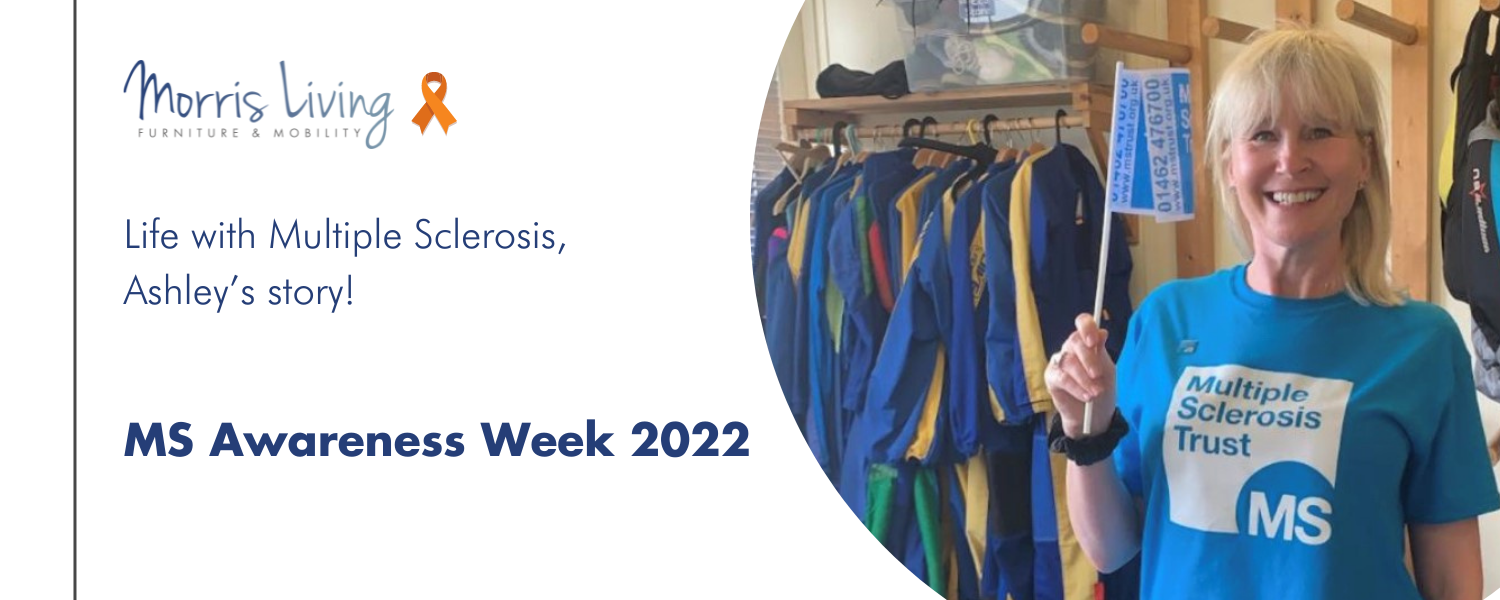Multiple Sclerosis Awareness Week takes place from 25 April to 1st May. Around 5,200 people in the UK are diagnosed with Multiple Sclerosis each year with the latest figures by the National MS Society suggesting that roughly 130,000 people are living with MS in the UK.
MS is a lifelong condition usually affecting the brain and spinal cord, otherwise known as your central nervous system. Symptoms such as mobility problems, numbness in the limbs, vision problems, and cognitive changes are common for those who are diagnosed. For many people, the first symptoms of MS are vision problems or a numb feeling in the face, arms, legs, or body.
MS is commonly diagnosed following a series of procedures, as according to the NHS no single test can be used to diagnose it. Some of the procedures that are used include a lumbar puncture, with blood tests being used to rule out other conditions.
MS also causes fatigue and can restrict an individual’s quality of life such as how active a life people lead, with symptoms often increasing in severity and more symptoms starting to appear.
People are generally diagnosed with MS in their 20s, 30s, and 40s, and women are more likely to be diagnosed with MS than men according to the MS Trust.
At Morris Living, we supply mobility furniture to support people with a range of disabilities, so we try to develop an in-depth understanding of different disabilities so that we can provide the best possible support through our products and services.
We recently spoke to a lady called Ashley about her life with MS and to find out more about her multiple sclerosis diagnosis and how it has impacted her life. She has been kind enough to allow us to share her story so that we can help more people to understand what it is like living with MS, the symptoms to be aware of, and the range of supports available to those living with the condition.
Ashley’s story of life with Multiple Sclerosis
When Ashley was diagnosed with MS at age 27 in the late 1990s, it was a complete shock to her and her family. Ashley was a very active person and was training for a marathon at the time and she had a successful career working on the national accounts for Mars Confectionary. There was no history of MS in her family genetics, so it was not a condition she had never worried about before or knew a great deal about.
Ashley began to feel numbness in one leg, and it gradually worsened before she was diagnosed with the most common type of MS, which is Relapsing-Remitting Multiple Sclerosis, which affects 85% of all people diagnosed with MS.
Due to her restricted mobility and nerve damage, Ashley had no option but to leave the job she loved. Consequently, Ashley’s mental health was hugely affected by the changes that had happened in her life. She tells us that losing her career resulted in her losing her sense of identity and purpose.
However, she did have one top priority to focus on. One of Ashley’s main concerns was how the diagnosis would affect her dream of becoming a mother. The doctors explained that she could not go on any form of treatment until she gave birth. Ashley was determined to have a child and was delighted when she welcomed her daughter Darcey-Belle into the world, three years after her MS diagnosis.
One positive that came from Ashley leaving her job was that she was allowed to dedicate her time to bringing up her daughter. Raising a child when you rely on the use of a wheelchair was challenging and Ashley remembers the struggles of taking her daughter to the beach while in a wheelchair, something which Darcey tells us did not affect her happy childhood.
Advances in MS care and treatment have slowed the progression of Ashley’s condition, meaning that she no longer requires the use of a wheelchair or any mobility aid. She is living a very active lifestyle and enjoys going for long walks, showing that MS does not have to be a sentence to stop living your life in every case.
Advice Ashley would give to someone who has just been diagnosed with MS
From Ashely’s experience of a diagnosis of MS and living with MS, she has a few pieces of advice that she wishes she had known at the beginning of the diagnosis:
- Don't despair, everyone's journey is different. No two cases are the same, keep positive and treatments are always advancing, which is completely different from when I was first diagnosed.
- Use the resources available and talk to your GP and specialised hospital MS nurse. There are so many sites that you can join online. This allows you to speak to people with the same condition as you, people who understand. Nobody can put anything terrible there, sites are monitored in comparison to other sites that aren't.
- Be careful about what you read online, as not everything is true and you might cause yourself unnecessary stress. Use well-researched and trustworthy sites only.
Ashley says she now feels good about herself and can control how MS affects her both mentally and emotionally. When she was first diagnosed, she felt isolated and did not want people to know about her condition. By joining groups with people going through the same experience, she has been able to make friends and get emotional support and advice to live as fully as possible.
She has even managed to do an airplane jump with her fellow MS friend Tony! The quality of the treatment that is now available compared to in the nineties has been a massive benefit to her life.








Thanks for sharing, very inspirational!
Amazing woman with an amazing story! 👏